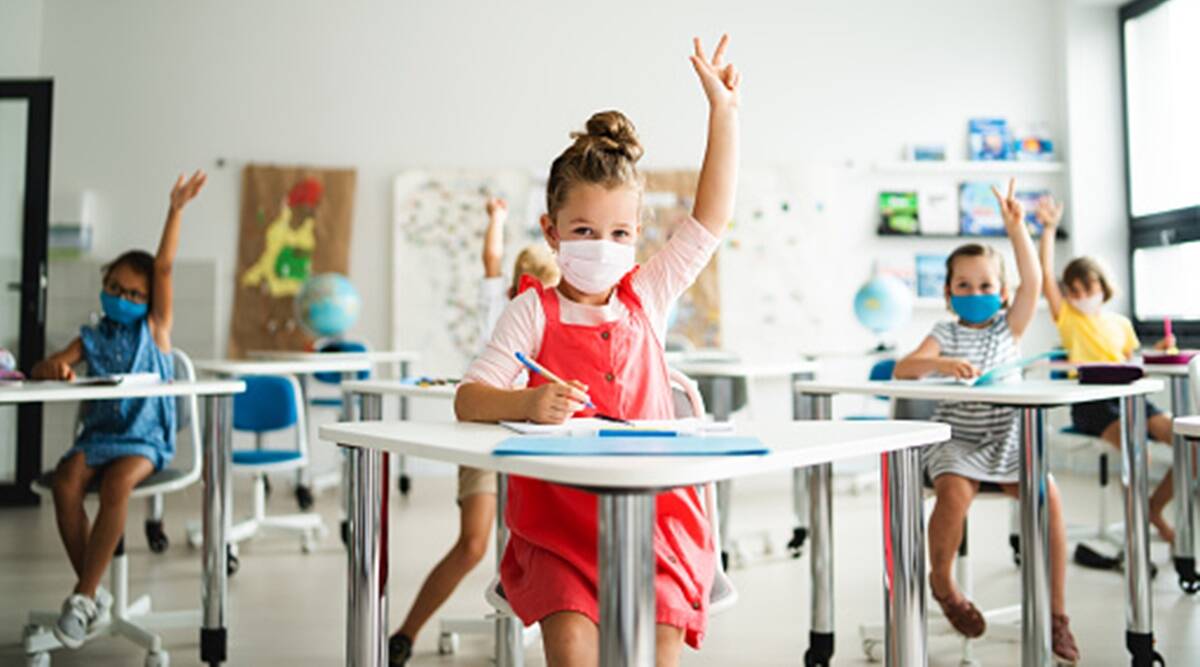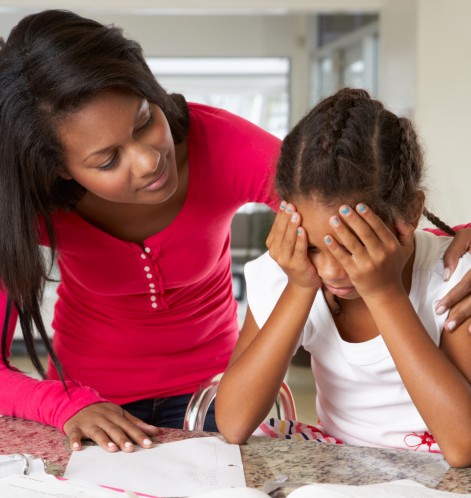
The worst part of the COVID-19 pandemic may be over but the after-effects of the extended lockdown are here to stay for some time. It is particularly hard for children (of all ages) as they gear up for the schools once again.
The prevalence of depression and anxiety symptoms during COVID-19 has doubled, compared with pre-pandemic estimates. A report suggests that the pooled prevalence estimates of clinically elevated child and adolescent depression and anxiety were 25.2% and 20.5%, respectively. After almost two years of attending virtual classes and hanging out with friends practically only on video calls, going back to school can be a huge and upsetting change for many children.
The good news however is that as a parent you can do a lot to ease the anxiety around going back to school after so long. Without overwhelming you with a zillion abstract pieces of advice, let’s get straight to the 7 quick and actionable steps that you can take today to help your child:
1. Spot the symptoms correctly
The first step is to identify the symptoms of anxiety-related to being at school after months of lockdown. A lot of times we over-correct or ignore the core symptoms to correct the peripheral worries in children. There are standard signs that most children are displaying today across the States with respect to the back-to-school proposition. These are the 5 telltale symptoms of this anxiety that you need to actively address:
- Avoiding the topic of going back to school, not responding appropriately to the questions about friends and teachers
- Losing interest in studies/ previously loved hobbies suddenly
- General quietness or excessive talkativeness (anything contrasting with the usual behavior)
- Not partaking in usual household activities, withdrawn or solitude-seeking behavior
- Upset stomach, loss of appetite, breathlessness, etc.
If your child displays one or more of the above symptoms, it is likely that they have bottled-up anxiety related to going back to school. This is when you must intervene in time and help them deal with the change more effectively.
Also Read: 5 Ways to Boost Executive Functioning Skills in Kids
2. Encourage your child to help other children (teach empathy)
Ask your child to help other children at school (younger than them or peers) cope with the stress and anxiety. When they will coach empathy by trying to be in other children’s shoes, they will realize that they aren’t alone. It is the classic case of doing better in an exam when you teach others about the same subject. It is because when we teach someone we also inevitably learn better and think deeper to be able to answer the related questions (like any great teacher)!
3. Work out a hybrid routine
The shift from a completely virtual world of academics, teachers, friends, competitors, etc. to the good old offline setup could be huge. At home, most children had a routine that was more leisurely for a lot of time was saved in not having to travel or dress up specifically, etc. The flexibility of the study-play-leisure timetable while in the lockdown was rather comforting for children and most had become used to it. Re-settling with a stringent timetable and the discipline and routine of the school can be intimidating.
The way out is to create a hybrid schedule that lets them retain the perks of studying from home while making the best of the at-school environment and learning opportunities. Some examples of this adjustment could be:
- Allowing a few extra minutes in the morning to get ready for school
- Exploring travel options/ routes that minimize the time spent in traffic
- Having only leisure time on Sundays
4. Exemplify being calm and optimistic
Children follow their parents as role models before anyone else. Assess your own handling of emotions related to school reopening. If you end up using sentences like, “oh, we must change so many things,” or “we will have to get up earlier now”, you will inevitably pass on the anxiety to your already anxious child.

Instead, use positive affirmations on purpose and model calmness and optimism for your child to follow. Try inserting optimistic sentences in your everyday conversation with your child, for example:
- “I am so excited to buy all the new stationery for your school, let’s go to Staples!”
- “It would be such fun to have your friends over again after school, isn’t it?”
- “What’s life without a game of ball with friends at school? I am so glad, the good old days are back!”
5. Use reassurance moderately
It is tempting as a parent to over-reason and over-reassure children in the hope that the fears can be nipped in the bud. However, this can be more detrimental than useful at times. Trying to talk about how great school is going to be is good, but only if done in moderation. Your child will sense any over-reassurance or excitement and will know in an instant that it is made up. Instead, make it all seem natural and talk about your office and the movie theatres reopening.
Also read: A Parent’s Guide to Raising Resilient Kids
6. Facilitate preparatory experiences
Only reassurance and talking out may not do it all to relieve your children’s anxiety. There are a few activities you can undertake beforehand to help them acclimatize and be prepared to tackle the upcoming changes. Some examples are:
- Take your children out to the malls, movies, parks, etc. with their friends from school. Meeting them beforehand will help them cope better in the school environment

- Drive them around the school and remind them of the good days that will come back with the school reopening
- Get them to buy new school bags, stationery, books, etc. that would make them look forward to going to school again
- Encourage pretend-play that involves a classroom setting (for younger children)
7. Get the extra help required with academics
If your child has anxiety issues related to going back to school, getting them extra help with academics can go a long way. For example, if your child has needed extra help with math before, it would be a good idea to pre-arrange extra help in math as the schools reopen. This will help them be confident at school as they take on the new changes in lifestyle and routine. You could hire a private tutor to help your child with specific subjects to help them cope better at school and avoid any negative experiences due to lower than expected grades or daily homework struggles.
Keen but not sure where to look for a tutor? Visit Talentnook.com and connect with hundreds of online tutors for any subject your child wants help in. You can discuss your expectations, budget, etc. beforehand, shortlist tutors based on their qualifications, and even request demo sessions. We also have study pods and dedicated programs for specific concerns like writing, just log on and get your child all the help and support they need to thrive at school and in life!
We hope this article helped you in every way you expected it to in trying to help your child adjust to being at school after months in lockdown.